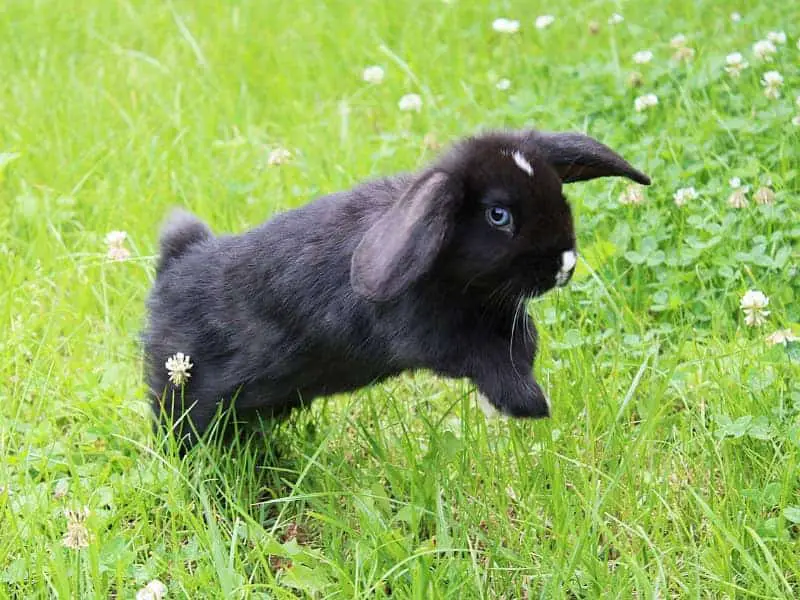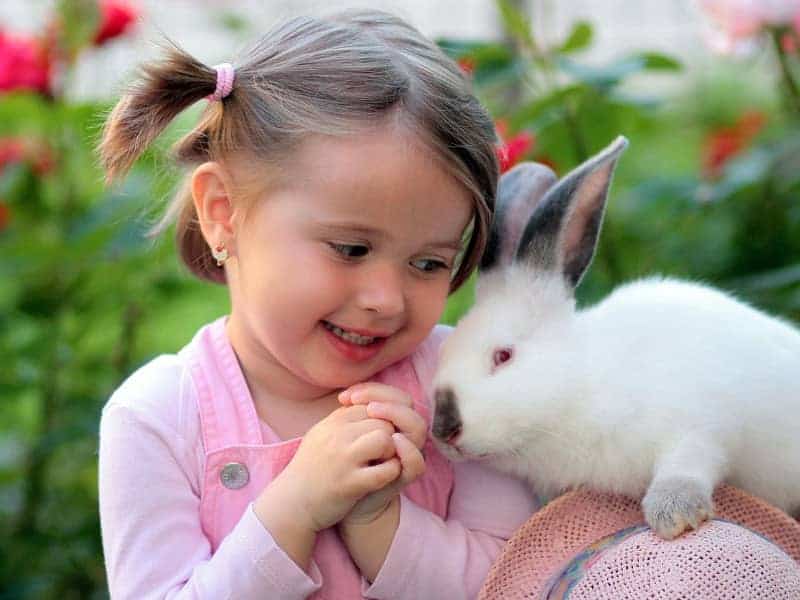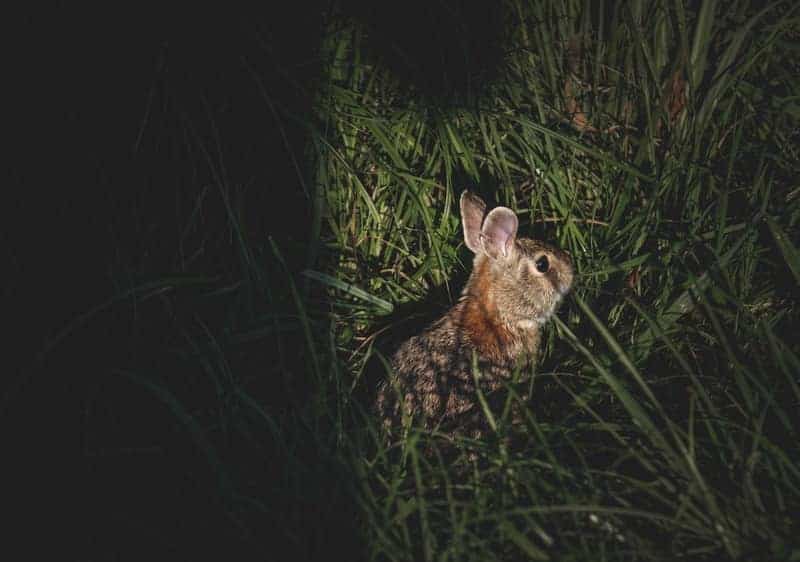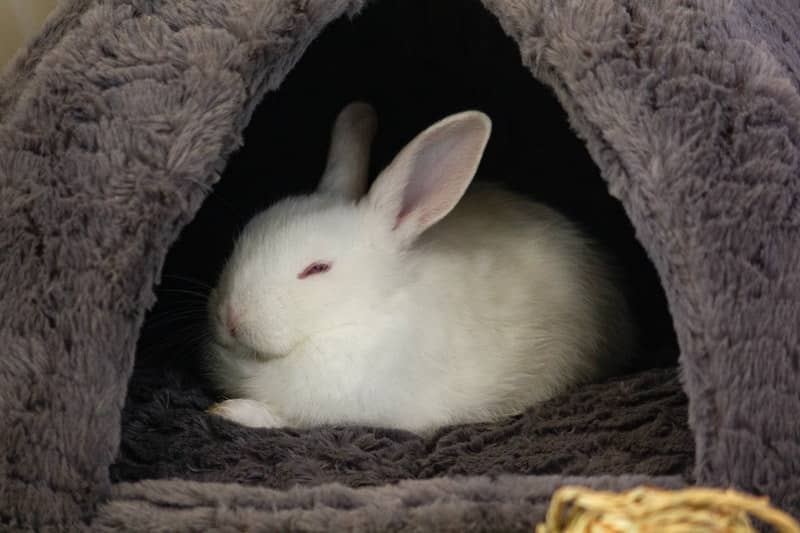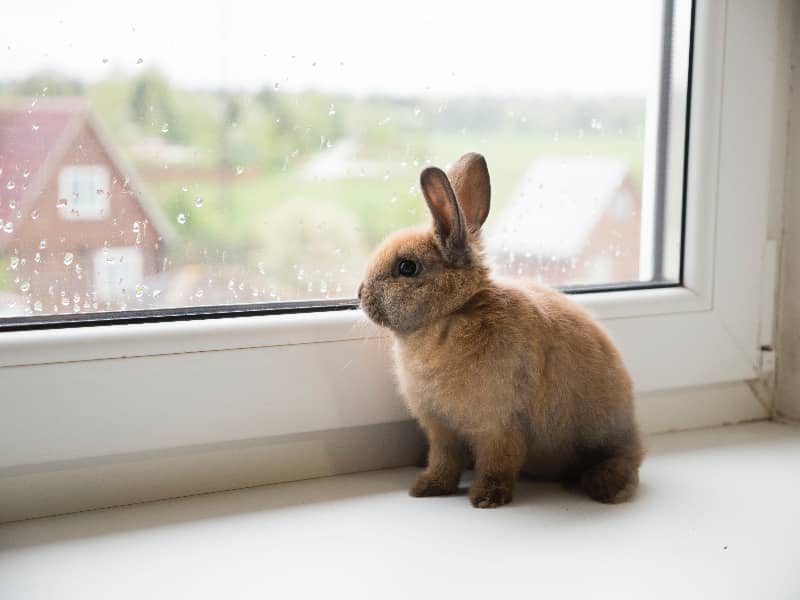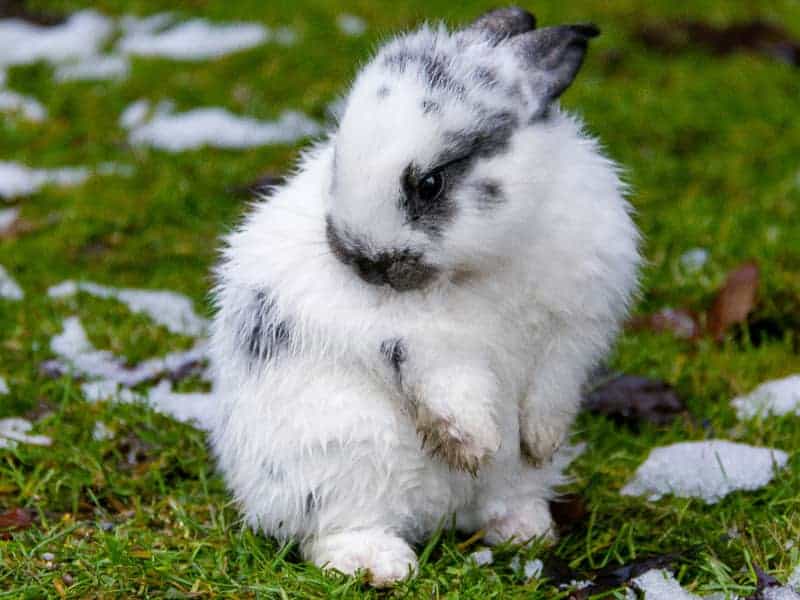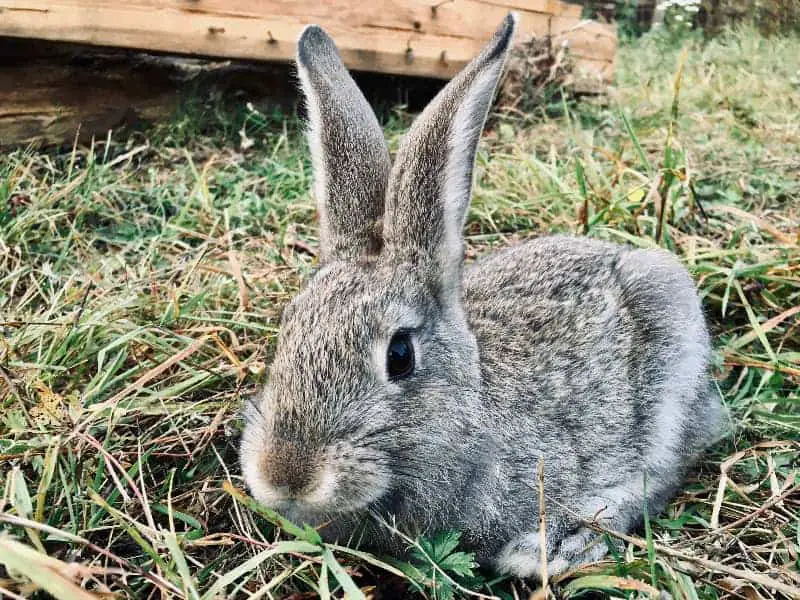
Are rabbits allowed to eat goutweed?
The goutweed: a plant that in many gardens is notorious as a pesky weed. But isn't it wonderful when it turns out that this supposed troublemaker could actually be valuable food for our pets? That's exactly why we deal with the question: Are rabbits allowed to eat goutweed?
What exactly is goutweed?
Before we go into detail, let's first get an overview of the plant itself. Goutweed (Aegopodium podagraria) belongs to the umbellifer family. It is often found in gardens, along roadsides, or in moist forests. With its trifoliate leaves and small white flowers, it is easy to recognize.
A question that often comes up: Isn't goutweed poisonous? Definitely not for humans. Many even use it in the kitchen as a wild vegetable. But what about rabbits?
Toxic or nutritious for rabbits?
Rabbits are known for their sensitive digestive system. Some plants that are completely harmless to us humans can be toxic to them. However, goutweed is not one of them. In fact, it is very nutritious for rabbits.
The leaves of goutweed contain numerous vitamins and minerals that are important for the health of animals. Especially the vitamin C plays a role, because rabbits can not produce it themselves.
Table of nutritional values of goutweed (per 100 g):
| Nutritional value | Quantity |
| Energy | approx. 34 kcal |
| Protein | approx. 3.5 g |
| Fat | approx. 0.7 g |
| Carbohydrates | approx. 4.4 g |
| - thereof sugar | approx. 0.5 g |
| Dietary fiber | approx. 6.7 g |
| Vitamin C | approx. 80 mg |
| Calcium | approx. 115 mg |
| Iron | approx. 2.3 mg |
Please note that these figures may vary depending on soil conditions, growing conditions and time of harvest. These are average values that give a general overview of the nutritional value of goutweed.
The different parts of goutweed at a glance
If you are considering feeding your rabbits goutweed, you should study the different parts of the plant in detail. Which are suitable and which should be avoided?
Are rabbits allowed to eat goutweed leaves?
The leaves of goutweed are definitely the most nutritious part for rabbits. They are rich in vitamins and minerals, which are essential for the health of animals. The vitamin C contained in them is especially valuable, as rabbits cannot produce it themselves. In addition, they provide a good amount of fiber, which supports the intestinal flora and thus contributes to good digestion.
Are rabbits allowed to eat goutweed stems?
Although the stems are edible, they are more fibrous than the leaves. This means that they can be fed, but in smaller quantities than the leaves. Overfeeding the stems could unnecessarily stress the digestive system of the animals, so care should be taken here.
Are rabbits allowed to eat goutweed flowers?
The delicate, white flowers of goutweed can be offered to rabbits without hesitation. Even if they do not have the nutritional content of the leaves, they are a tasty change and can be gladly included in the menu. Especially in the blooming season they offer themselves as a natural and healthy treat.
Are rabbits allowed to eat goutweed roots?
Care should be taken with the roots of goutweed. They can be difficult for rabbits to digest and could only be offered in very small quantities, if at all. However, it is advisable to avoid feeding the roots altogether to avoid possible digestive problems.
Goutweed in combination with other forage plants
In addition to feeding goutweed alone, it can also be interesting to offer it in combination with other forage plants. But which plants harmonize well with goutweed and also offer health benefits?
Goutweed and dandelion
Dandelion is commonly known among rabbit owners and is often offered as a treat. Like goutweed, dandelion contains many important vitamins and minerals. Combining goutweed and dandelion not only provides a flavorful change, but also a health boost. While goutweed is particularly rich in vitamin C, dandelion provides additional potassium and magnesium.
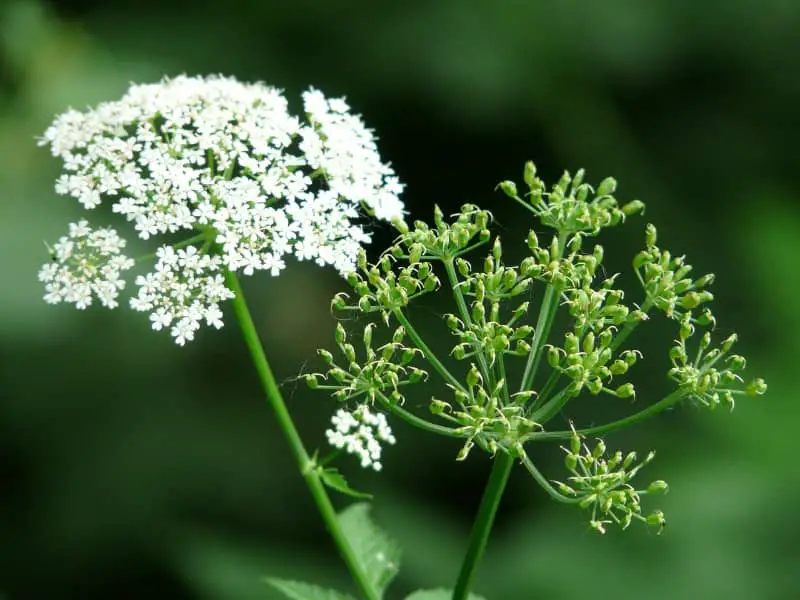
Goutweed and nettle
Nettles, often considered a weed, are a true blessing for rabbits. They have anti-inflammatory properties and can help cleanse the blood. Together with goutweed, they can help strengthen the rabbit's immune system and promote its overall health.
Goutweed and parsley
Parsley is popular not only in human cuisine, but also with our furry friends. Parsley has a high content of vitamins A and C. In combination with goutweed, it provides a balanced vitamin intake and promotes the health of rabbits.
How to store goutweed properly
If you plan to store goutweed for a long period of time, there are a few things you should keep in mind. Freshly harvested goutweed can be stored in an open plastic bag in the vegetable compartment of the refrigerator. It will stay fresh for about a week. If you want to store it longer, you can also dry the leaves and offer them later as dry food.
Conclusion: Are rabbits allowed to eat goutweed?
The diet of a rabbit should be varied, balanced and above all healthy. Goutweed, often considered a troublesome weed, turns out to be a valuable addition to the diet of our little companions on closer inspection. With its high content of vitamins and minerals, it contributes significantly to a healthy diet.
Especially the leaves of goutweed are rich in nutrients and can be fed without hesitation. In combination with other nutritious plants such as dandelion, nettle and parsley, it offers an all-round supply for rabbits. But as with everything, variety is important and attention should always be paid to how the animal reacts to new food.
Proper storage of goutweed also ensures that its nutrients are preserved and that it serves as a healthy food source over time. In short, goutweed is much more than a simple garden weed. It is a valuable food source that can contribute to the health and well-being of our rabbits.
Author

-
Garden animal - A life with nature
Welcome to my animal blog! My name is Dirk and I am happy to take you on my journey through the fascinating world of animals and gardening.
Born 54 years ago, I have had an insatiable curiosity for the animal world around me since childhood. Although I have moved professionally in other industries, my true passion has always been animals and nature. It is remarkable how a small garden has become such an important part of my life.
Many of my fondest memories are associated with the animals that share our home. Whether it's the curious squirrels that scurry across the trees in the morning, the colorful variety of birds that visit our feeders, or the busy bees and butterflies that pollinate our flowers, every moment with them is invaluable to me.
This blog is my contribution to share my experiences, discoveries and insights with like-minded people. Here I will share stories of unforgettable encounters with animals, give tips on gardening and creating wildlife-friendly habitats, and take you on my journeys through nature.
Thank you so much for being here!
Cordial,
Dirk aka garden animal
Last posts
- 27. February 2024PetsVeganes Hundefutter – Grün und Gesund?
- 18. January 2024ChickensOregano für Hühner
- November 27, 2023HamsterDiurnal hamsters
- November 24, 2023HamsterHamster hammock

